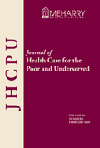by Michelle Lamb, Pharm.D., CDE, BCACP, an ACU member who serves on the ACU Advocacy Committee.
Newly introduced legislation could threaten patient access to sterile injectables under the guise of addressing drug shortage issues. ACU members should learn more and voice their concerns to Congress.
On November 29th, 2012, Rep. Bill Cassidy (R-Louisiana), MD, introduced the Patient Access to Drugs in Shortage Act (HR 6611). It would:
- Exempt generic injectable products with three or fewer active manufacturers from Medicaid rebates and 340B discounts
- Change the Medicare reimbursement rate for generic injectable products with three or fewer active manufacturers from Average Sales Price (ASP) + 6% to Wholesale Acquisition Cost (WAC)
- Exclude the Patient Protection and Affordable Care Act (PPACA) annual fee for any brand company that enters the market to produce a drug that is in short supply.
- Require the Secretary to contract with an independent entity to study the effects of the legislation and provide a report back to Congress no later than 3 years after the enactment of the bill.
Of these, the most drastic change would be the exemption from the 340B program of generic sterile injectables with three or fewer active manufacturers. This could potentially include nearly all generic injectables, which is of great concern to ACU members, particularly those who work in a disproportionate share hospital environment. It does not appear this legislation will impact oral medications prescribed in outpatient settings.
The recent health care reform legislation increased the number of covered entities that are eligible to participate in the 340B program. Last year, Rep. Cassidy sent a letter to HRSA recommending that the 340B program be limited to patients who are uninsured, which is a major variation from the current “covered entity” approach.
There is no evidence that 340B program expansion has caused drug shortages, but such charges could be used attract support for additional 340B restrictions.
Read The Facts Behind Drug Shortages and 340B from the Safety Net Hospitals for Pharmaceutical Access (SNPHA) and consider contacting your Representatives. A draft letter is available below.
Dear Representative ______,
I am writing on behalf of (Insert Hospital Name), which serves patients in your district and throughout our state. I would like to express concern over H.R. 6611, “The Patient Access to Drugs in Shortage Act,” which would have a negative impact on our institution and patients.
The legislation, introduced by Rep. Cassidy (R-LA), includes a provision that would exempt generic sterile injectable drugs with three or fewer manufacturers from the 340B drug discount program and Medicaid rebates. The 340B program enables our hospitals to access discounted drugs and biologics so that we can continue to provide pharmaceutical care to large numbers of low-income, underinsured and uninsured individuals.
If enacted, H.R. 6611 would be extremely detrimental to 340B providers throughout our state. The exemption would not only increase costs to patients, providers and the government but it would also not alleviate drug shortages. In fact, we are concerned that the provision would actually exacerbate the shortage problem.
Explanations for drug shortages include product quality, manufacturing capacity problems as well as possible inadequate reimbursement. However, there is no nexus between the 340B program and shortages. H.R. 6611 would place a costly burden on our institution and its patients during a time when we already face serious budgetary challenges.
We ask that you oppose H.R. 6611 in its current form. We would like to thank Congress for the bipartisan legislation it enacted earlier this year and ask that the law be given an opportunity to work. If you have further questions, please do not hesitate to contact me.
Sincerely,
 Follow
Follow




Follow Us!